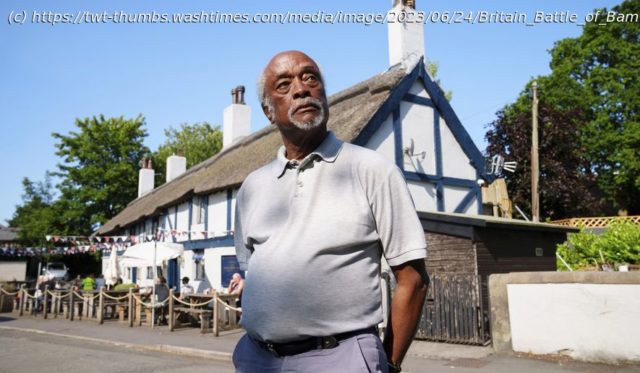Array
The village of Bamber Bridge in northwestern England is proud of the blow it struck against racism in the U.S. military during World War II.
When an all-Black truck regiment was stationed there, residents refused to accept the segregation ingrained in the U.S. Army. Ignoring pressure from British and American authorities, pubs welcomed the GIs, local women chatted and danced with them, and English soldiers drank alongside men they saw as allies in the war.
But simmering tensions between Black soldiers and white military police exploded on June 24, 1943, when a dispute outside a pub escalated into a night of gunfire. Private William Crossland was killed and dozens of soldiers from the truck regiment faced court martial. When Crossland’s niece learned about the circumstances of her uncle’s death, she called for a new investigation to uncover how he died.
The community has chosen to focus on its stand against segregation as it commemorates the 80th anniversary of what’s now known as the Battle of Bamber Bridge and America reassesses its past treatment of Black men and women in the armed forces.
“It’s a sense of pride that there was no bigotry towards (the soldiers),” said Valerie Fell, who was just 2 in 1943 but whose family ran Ye Olde Hob Inn, the 400-year-old thatched-roof pub where the conflict started. “They deserved the respect of the uniform that they were wearing.”
Black soldiers accounted for about 10% of the American troops in Britain during the war. Serving in segregated units led by white officers, most were relegated to non-combat roles such as driving trucks. U.S. authorities tried to extend those policies beyond their bases, asking pubs and restaurants to separate the races.
Bamber Bridge, then home to about 6,800 people, wasn’t the only place to resist. In a country then almost entirely white, there was no tradition of segregation.
What’s different about it was the desire of local people to preserve their story, said Alan Rice, co-director of the Institute for Black Atlantic Research at the University of Central Lancashire.
Home
United States
USA — Events UK village marks 80th anniversary of fight against US Army racism in...






